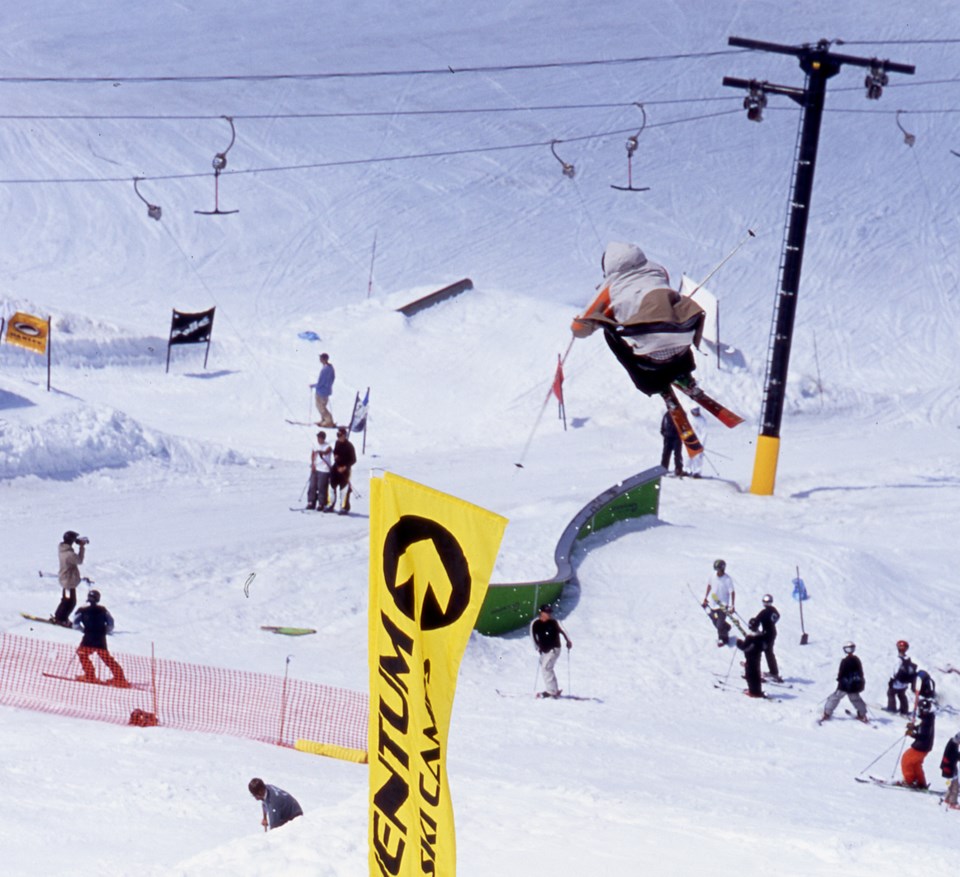Since Whistler Mountain’s first year of operations in 1966, summer skiing has been a staple in many people’s summer plans. One of the first summer ski camps hosted in Whistler was called the Toni Sailer Summer Ski Camp, hosted by gold medal Olympian Toni Sailer. This particular camp ran from 1967 until it was taken over by Dave Murray, becoming the Atomic Dave Murray Whistler Summer Skiing Camp. While over the years many camps have come and gone, such as Camp of Champions and High North Camp, Momentum Ski Camps has been on the slopes for more than 30 years.
Originally known as Smart Mogul Skiing, the camp was started in 1992 by former Olympians John and Julia Smart, who offered freestyle mogul skiing instruction. Over the years, Momentum expanded to offer instruction in a wide range of freestyle disciplines to athletes from all over the world. The camps started small, with as few as 43 participants, but grew to host 1,000-plus campers per season. The original camps ran for three weeks, but over the years were extended to five.
Other changes included the name, which went from Smart Mogul Skiing to SMS and then finally to Momentum Camps in 2004. One of Momentum’s key principles has always been to hire top talent, including Olympians and World Cup competitors, to instruct and inspire students. Campers are not only inspired by their instructors’ skills, but also have the chance to build strong relationships with them. The camps are a tightly knit group, and the majority of staff are former campers.
The Smarts believe exposing students to a variety of disciplines helps to build a passion for skiing and foster a life-long love of the sport. John attributes Momentum’s longevity to its ability to navigate and adapt its programs as the sport of freestyle skiing has changed over time.
Fans of summer skiing are disappointed this year, as 2024 is the first year since 1996 there is no summer ski season at either Whistler or Blackcomb. The summer season traditionally started in mid July; however, this summer the Horstman Glacier is closed due to a low snowpack.
While it is sad to say goodbye to summer skiing for at least this season, we understand why the Horstman Glacier is closed. After a winter that only provided 49 per cent of the usual snowfall, the glacier isn’t in its best form. In recent years, the shrinking snowpack has made the beloved Horstman T-bar unusable, resulting in its removal in 2021. Shrinking glaciers and reduced glacial meltwater can also disrupt the production of hydroelectricity, although the Horstman Glacier is not part of Whistler’s hydroelectric power system.
Without intervention, the glacier could shrink to half its current size over the next 20 years. In an interview in 2015, Whistler Blackcomb’s former mountain planning and environment resource manager Arthur De Jong discussed man-made snow production as one option for recuperating the glacier, though the ecological impact of the energy used to rebuild the glacier would need to be justified with continuous efforts to lessen the mountain’s ecological footprint. He said if snow production was introduced, only enough snow to maintain the glacier would be made. Thinking long term, De Jong said it might have been possible to close the energy consumption loop with energy-generating solutions such as wind turbines. It does not, however, appear this approach was used on the Horstman Glacier.
While many will miss the summer ski season this year, it is unknown whether the tradition of summer skiing and boarding will continue. Until then, we can enjoy the many other summer activities like hiking, biking, and plunging into Lost Lake that Whistler has on offer!
Ella Healey is the Summer Program Coordinator at the Whistler Museum through the Young Canada Works Program




